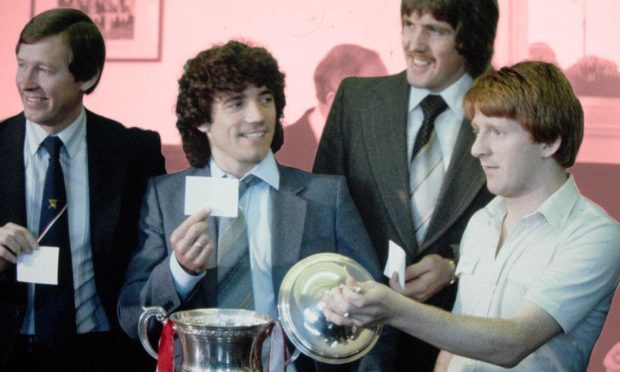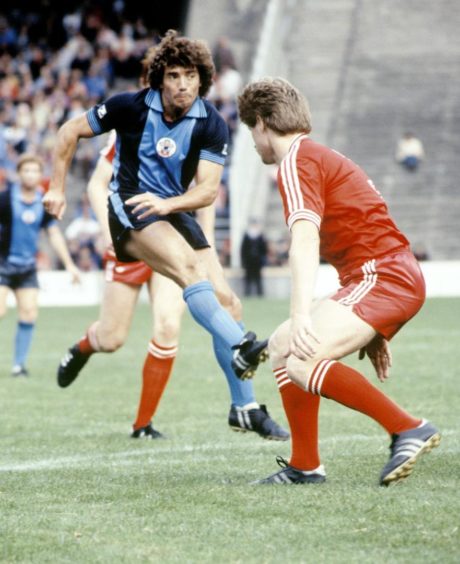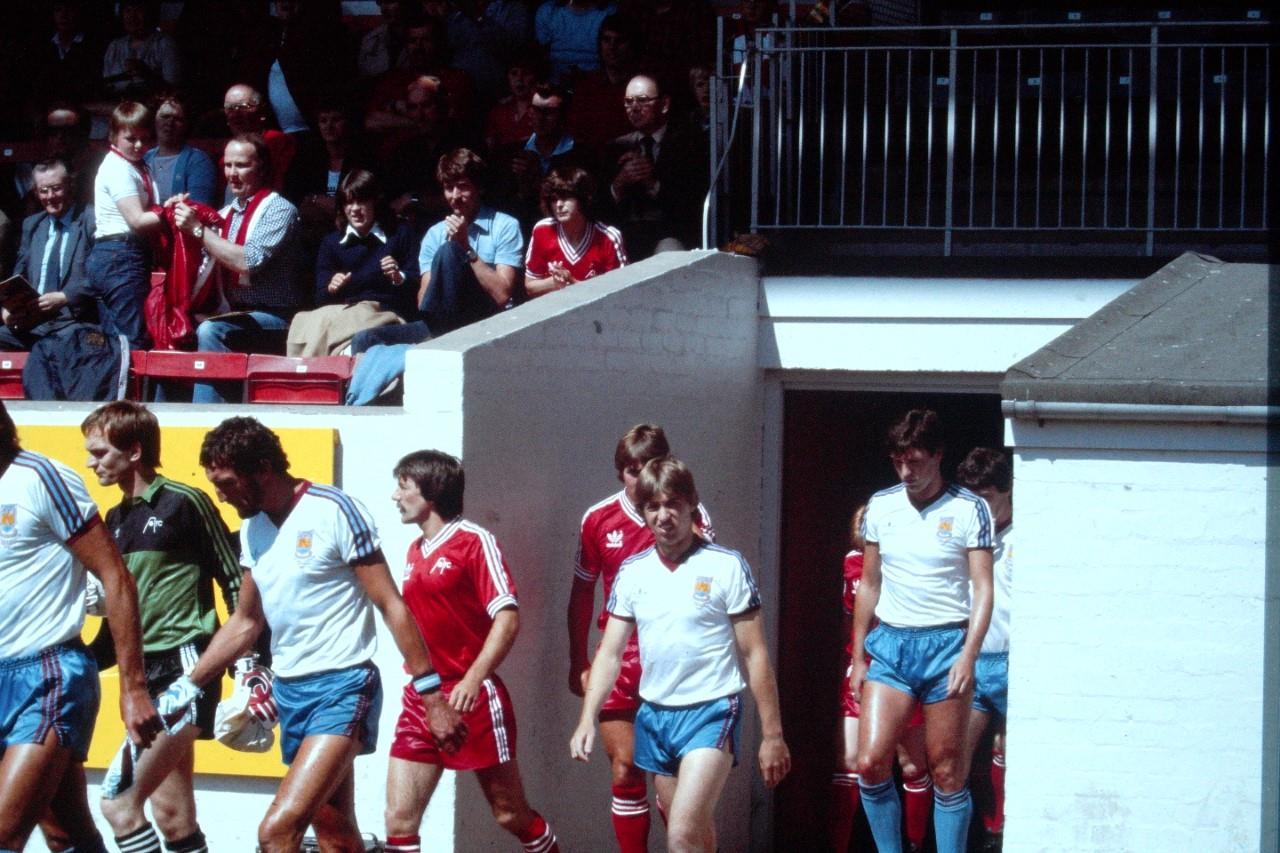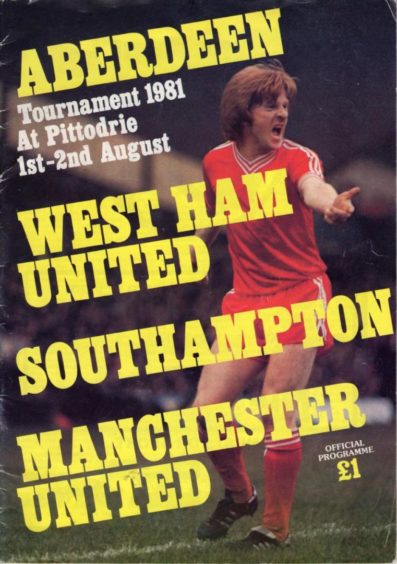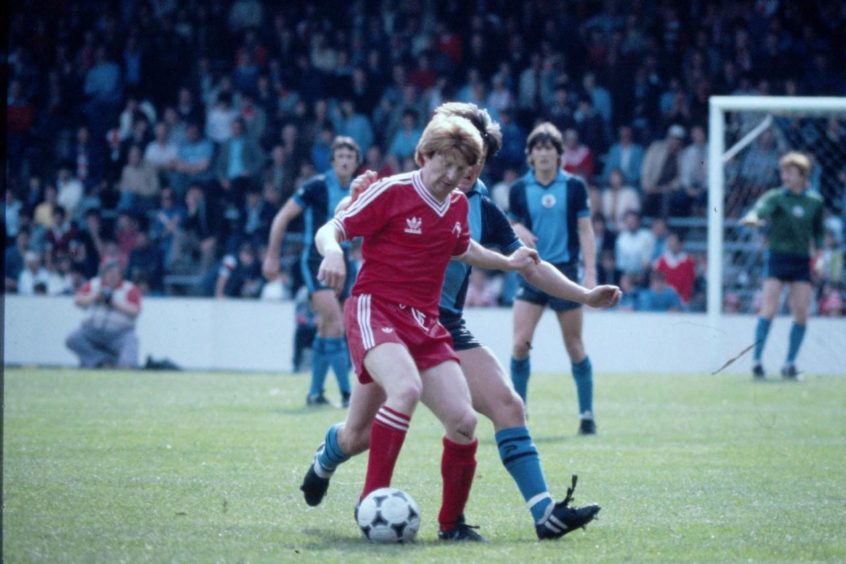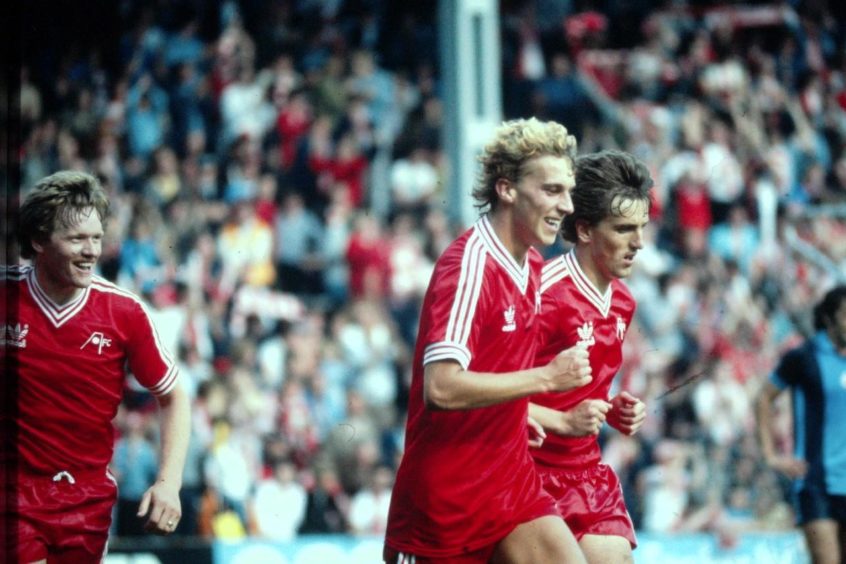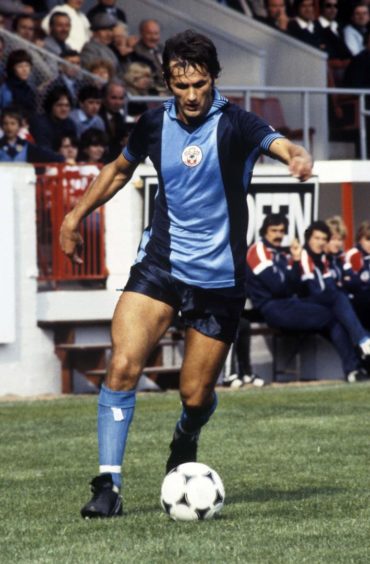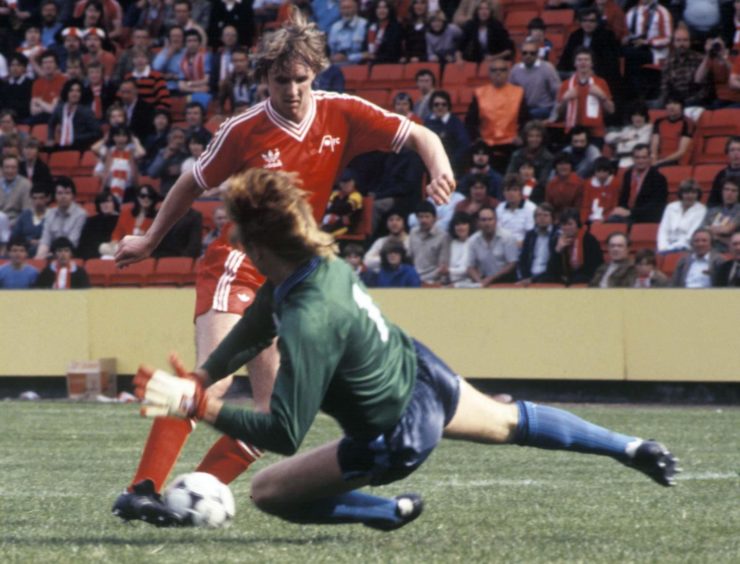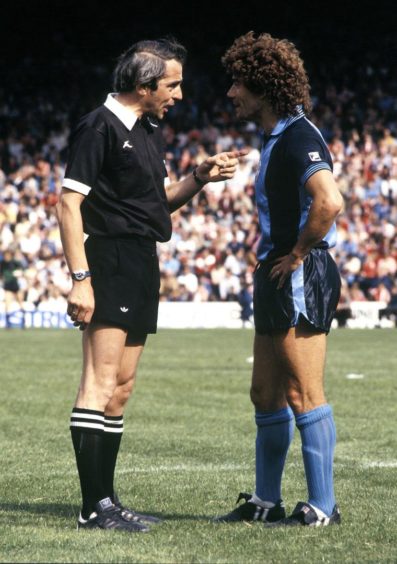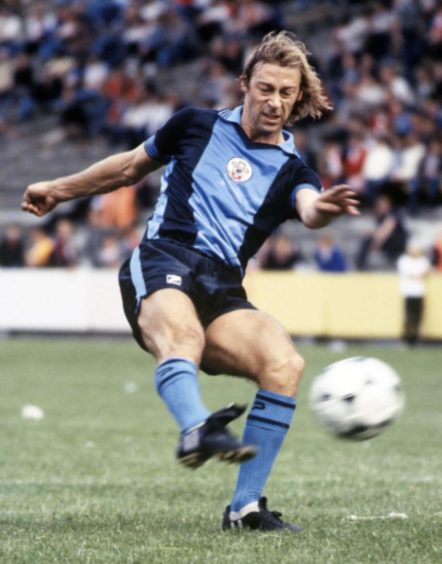There was no shortage of incident, intrigue and international quality when Aberdeen FC hosted a pre-season tournament 40 years ago.
The event featured a litany of A-listers, including Alan Ball, Kevin Keegan, Trevor Brooking and Charlie George, who all performed at Pittodrie when the Dons locked horns with Manchester United, West Ham and Southampton on August 1 and 2 1981.
But while it may have been billed as a friendly build-up to the new league campaign, the hosts were determined to send out a signal that they could beat the best in England.
And, just a month later, they confirmed their rising reputation when they knocked reigning champions Ipswich Town out of the UEFA Cup.
There was plenty of anticipation once it was confirmed that the three English clubs were travelling to the north east to participate in a gruelling competition, with all the teams committing to playing on consecutive days.
The Dons had suffered an embarrassing 5-0 aggregate loss to Liverpool in the European Cup the previous year, an outcome which demonstrated to Ferguson the giant strides forward which were still required from his squad.
But his men were on an upward curve, they had bolstered their already impressive reserves with the recruitment of Peter Weir, and it was a measure of their confidence that they had no fears about tackling English opponents.
The draw didn’t work out as Dons hoped
The talismanic, trademark-permed Keegan, who was no stranger to the high life and making appearances with dubious ditties on Top of the Pops, ventured north from Southampton to Pittodrie to help with the draw for the opening day’s fixtures.
And, while Aberdeen’s dream scenario was to meet either Southampton or West Ham on the opening day and, hopefully, get through to lock horns with the Old Trafford elite in the tournament final on the Sunday, that was not how matters panned out.
Instead, Keegan pulled Aberdeen from the hat to face West Ham Utd, as the prelude to his talented Southampton ensemble meeting the Red Devils.
The tournament format emphasised the scale of the Dons’ ambitions.
Quite apart from the glittering cast list, with more than 20 internationalists in the squads, there was also prize money up for grabs with £15,000 for the winning side and £10,000 for the runners-up, while the third and fourth-placed sides battled for £5,000.
These may be modest sums in modern football, but this was another time, another place, and there was definitely a sense of excitement as the contests beckoned.
Southampton boss Lawrie McMenemy was among those who spoke about how much he was looking forward to the chance to get involved in such an innovative event.
The gnarled and vastly-experienced boss said: “After all of our travelling [abroad], it is great to be invited to a tournament like this in Britain. Last year, we took part in a similar venture which was organised by Feyenoord and we ended up winning that.
“There are four good teams taking part and I am sure the fans will be in for a treat. West Ham and ourselves put a lot into attacking football while Manchester United’s reputation is awesome. This is ideal as preparation for the new season.
“Kevin told me how impressed he was with the set-up at Aberdeen when he was there earlier in the year. And I’m looking forward to having a look at the all-seater stadium.”
AFC Heritage Trust stalwart Malcolm Panton has investigated the background to the 1981 tournament and has no doubt it was a positive development for the club.
He recalled: “Aberdeen had prepared with some intensive training and had drawn their first friendly at lowly Dunfermline. It was hardly the ideal preparation, but there was a ring of confidence around Pittodrie.
“The Dons welcomed back Gordon Strachan from a six-month lay-off and new record signing Peter Weir was also making his first Pittodrie appearance.
“Another newcomer to Pittodrie for the weekend was Ron Atkinson who was taking charge of Manchester Utd for the first time since leaving West Bromwich Albion.
“Aberdeen posted their intent in the opening match by defeating West Ham 3-0 in a display that certainly rocked the Londoners. Just over 10,000 turned out to see new signing Weir play a vital part in the Aberdeen win.
“He opened the scoring after 20 minutes and was given a standing ovation after being substituted. West Ham had some well known names in their side with Trevor Brooking still strutting his stuff as well as Scotland full-back Ray Stewart, Billy Bonds, keeper Phil Parkes and Paul Goddard.
“Aberdeen increased their lead in the 58th minute when Doug Bell dispossessed Brooking at the edge of the West Ham area and sent a sweet shot in to the corner of the net. The scoring was completed late on when Mark McGhee finished from the tightest of angles after Bell had set him up after another superb run from a deep position.”
Despite his typically flamboyant personality being in evidence as he entered Pittodrie, Atkinson couldn’t produce miracles with an ageing United contingent which included well-known Scots in Martin Buchan, Gordon McQueen and Lou Macari.
A young Jimmy Nicholl who later played for Rangers and managed Raith Rovers to their memorable League Cup triumph in 1995, was also among those in the ranks, but Southampton comfortably defeated them 3-1 in the other game on the Saturday and that result set up a first-ever clash between the Dons and the Saints on the Sunday.
If anybody doubted the advances which Ferguson had orchestrated since arriving three years earlier, the climax offered a stunning exhibition of their powers.
Southampton had several well-known faces in their line-up and most observers believed they would provide Aberdeen with a tough test in the denouement.
Ivan Golac, the flamboyant figure who went on to manage Dundee Utd, was in exalted company with England internationals Kevin Keegan, Mick Channon and 1966 World Cup winner Alan Ball in their starting line-up as well as the talented Charlie George.
Much was also expected from prolific young striker Steve Moran who had scored 18 goals for Southampton the previous season.
But, in the event, they were simply blown away by a ferociously committed and quality performance from the home side, who dazzled in front of more than 12,000 supporters.
As Panton said: “Aberdeen got off to the perfect start with John McMaster scoring after three minutes. The Saints hit back in the 14th minute when an Ivan Golac corner was touched on by Alan Ball for Steve Moran to head in at the far post.
“But it was at that stage the Dons took a grip on the game with Dougie Bell in particular a constant menace. Steve Cowan put Aberdeen 2-1 in front, then a free kick from the impressive Weir deceived the Saints defence to let Mark McGhee in for the Dons third.
“John Hewitt and Drew Jarvie came on for Cowan and Bell [in the second half], but Aberdeen retained their slick rhythm.
After 75 minutes, Golac brought down McGhee after another penetrating run.
Gordon Strachan saw his penalty saved by Saints keeper Peter Wells, but the quick reactions of substitute Hewitt put Aberdeen 4-1 up.
“Three minutes later, Aberdeen completed a marvellous weekend’s work when young Neale Cooper turned in a Hewitt cross for the Dons’ fifth goal.”
The result was both comprehensive and richly deserved, but, to his credit, McMenemy was honest in defeat and sent a warning to other English clubs about the Dons’ threat.
He said: “We expected a tough game because these England v Scotland games always are, but Aberdeen showed qualities that I did not expect.
“We have no excuses as we have had more games behind us than Aberdeen had, so fitness did not come into it. I think Ipswich will have a real hard battle against Aberdeen – if they did not know it before, they will now”.
It was the start of a magical journey
This was a very prescient analysis of the situation.
Just a few weeks later, Ferguson’s team clinically eliminated Bobby Robson’s side with a 4-2 aggregate victory, following a 1-1 draw at Portman Road and a 3-1 success in the return leg at Pittodrie.
Aberdeen, who had been tonked the previous season at Anfield, were now a significant force in Europe and famously lifted the Cup-Winners’ Cup 18 months later.
They never looked back from that massacre of the Saints.
Aberdeen’s success in the event was the catalyst for conversations about the creation of a possible British League football structure which continue to this day.
The Press and Journal carried a report on August 1 1981, in which reporter Alastair MacDonald examined the prospect of the Dons joining a new UK competition.
He wrote: “The formation of a British League, involving the top clubs on either side of the Anglo-Scottish border, may still be little more than a topic for speculation, but the possibility that such a set-up could become a reality gives added significance to events like the Pittodrie tourney.
“In such an elite organisation, there would, for mainly economic reasons, not be many places available to Scottish clubs, and Aberdeen’s chances of selection could depend on how familiar English clubs are with their standard of play, the excellence of their facilities, and the degree of public support they could expect in the Granite City.
“But, given how they have performed in the last two seasons, this could really be a chance for Aberdeen to shine in a British setting.”
